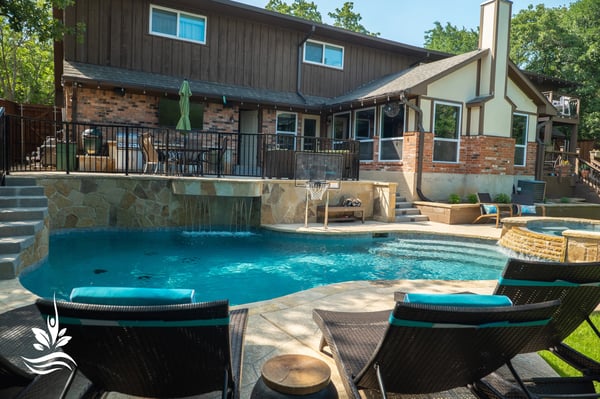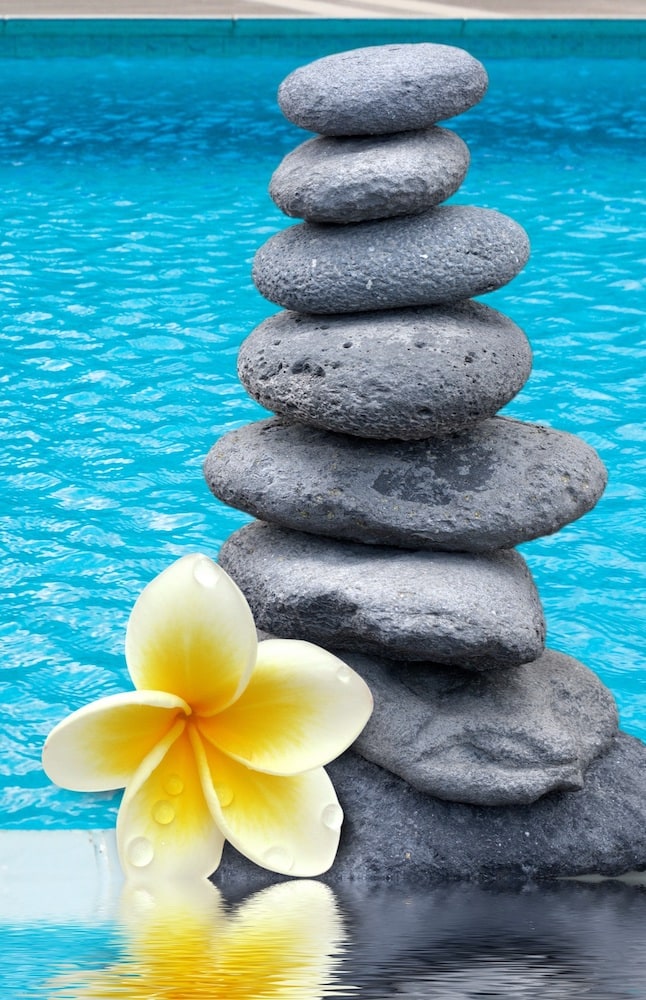Quotes by:
Tom Morris
Founder and Executive Vice President for Commercial Business Development
Selah Pools & Custom Outdoor Environments
Texas and Florida
- What do you do, and how does it relate to pools?
- Our company, Selah Pools & Custom Outdoor Environments (com) designs, engineers, and builds custom outdoor environments for residential and commercial owners. As an award-winning national brand headquartered in Texas with a newly opened location in Florida, we focus on the health, wellness, and joy of outdoor design, with the swimming pool as the crown jewel.
- How long have you been in your industry?
- Selah employs an array of in-house and contract design, engineering, and construction experts. Our founders include a builder with over 30 years of trade experience, specifically in the pool-building industry. Our second founder and Selah’s President has decades-long expertise in specialty construction; her trade relationship experience is instrumental in managing our reputation and our award-winning customer service.
- As a fellow/third Founder of Selah, I, personally, am a careered business professional with decades of experience in engineering for automotive, aerospace, and oil gas construction -- and now with more than seven years of custom outdoor design management experience.
- What is a saltwater pool?
- First, let’s start with what a saltwater pool isn’t. It’s easy to confuse a saltwater pool with the idea of saltwater in the ocean. A saltwater swimming pool is “salty” on purpose, but the salt in a saltwater pool is there to help keep the pool water clean. Ocean water saltiness (salinity) is ~35,000 parts per million (ppm), but a saltwater pool is kept at about ~3,000 ppm. So, while you might detect a slight saltiness if you get a mouthful of pool water, it won’t be nearly as harsh as the taste of your last seaside vacation.
- How does it differ from a traditional chlorine pool?
- Traditional chlorine pools need chlorine added for sanitation. Saltwater pools use a “chlorine generator” to break down table salt, self-producing chlorine.
- Do you need different equipment for a saltwater pool?
- There are a few differences in the type of sanitation equipment for a saltwater pool. The key piece of equipment in a saltwater pool is the salt-chlorine generator. Chlorine pools require a system or manually adding chlorine using a test kit. The generator uses electrolysis to convert salt into chlorine, creating an automated self-regulating sanitization system. Modern saltwater pool equipment includes a digital system to monitor and adjust pH and the levels of salt and other chemicals.
- Are they harder to maintain?
- A saltwater pool requires a different maintenance routine, but is relatively easy to manage. A modern pool salt system is self-regulating. This automation leads to more stable and consistent water chemistry, reducing the need for frequent testing and adjustments. Daily pool water sanitation is less work and more consistent than a traditional chlorine system. But the equipment is more sophisticated, so it comes down to understanding how it works and monitoring its performance.
- Is a saltwater pool safer for pets or better for the environment than a traditional pool?
- We recommend to our owners that we prefer they keep their pets out of the pool entirely for both pet safety and water cleanliness. But we’re “pet parents” too, so safety comes first; but yes, saltwater pools can be safer for pets. The lower chlorine levels are gentler on their skin and eyes, reducing potential irritation.
- As for the environment, saltwater pools have some benefits over traditional chlorine pools. They avoid the need for frequently manufacturing, transporting, and storing chlorine - processes that have environmental impacts. Because they self-generate chlorine, there are fewer chemicals to handle and potentially spill. Candidly our opinion is that this is an often-overlooked benefit. Saltwater pools do draw more electricity to run the salt-chlorine generator, so individual environmental considerations exist. While neither pool type is perfectly green, saltwater pools tend to be a step in an eco-friendlier direction.
- Why do people choose saltwater pools?
- If our clients enjoy their pool as part of their lifestyle and use it regularly, they know that saltwater is gentler on their skin and eyes, offering a more comfortable swimming experience than traditional chlorine pools.
- Saltwater pools require less day-to-day maintenance and offer a more consistent clean water experience because a modern saltwater system is automated.
- The cost of a saltwater pool is lower than traditional chlorine sanitation, but the upfront investment is higher. Because our clients don’t need to buy chlorine and instead use common pool salt, lifetime ownership costs are lower. Also, during the pandemic days, for example, pool chlorine was in short supply, causing chlorine prices to rise, and in some cases, there were supply outages. Avoiding chlorine altogether does reduce the cost risk.
- Do saltwater pools improve the value of a home?
- Adding a saltwater pool can add value to your home, much like any high-quality, well-maintained pool. They're increasingly popular due to their lower maintenance needs and more comfortable swimming experience, and that popularity can translate to home buyer interest.
- If so, by roughly how much?
- Determining a home's resale value based on a pool isn't a simple task - there's more to it than just the type of pool sanitation. More often than not, the visual allure of a beautifully crafted backyard oasis grabs attention. As designers and builders of custom outdoor spaces, we've seen firsthand that a well-curated outdoor experience can significantly boost a home's value. It's about creating a space that looks great from the curb and offers a unique and engaging environment for homeowners to enjoy.
- What are the top 5 benefits to a homeowner of a saltwater pool?
- Comfort: Saltwater pools are softer on the skin and eyes, providing a more pleasant swimming experience. Plus, they don't leave that characteristic "chlorine smell" lingering on your post-swim.
- Reduced Maintenance: With a salt-chlorine generator producing chlorine continuously, saltwater pools require less daily maintenance. This self-regulating system means more swim time, and less chore time.
- Long-Term Cost Savings: While there's a higher upfront cost, the ongoing expenses are typically lower because you're not regularly buying and adding chlorine.
- Health and Environmental Benefits: Lower levels of commercial chlorine make saltwater pools a healthier choice for some, particularly those with sensitivities to chemicals. They're also considered greener due to fewer chemical handling and disposal concerns.
- Increased Home Appeal: The modern, low-maintenance nature of saltwater pools can be a selling point that boosts home appeal, potentially attracting more interested buyers if you ever decide to sell.
- What are the top 5 drawbacks to a homeowner of a saltwater pool?
- Upfront Cost: Saltwater pools require a significant initial investment, primarily due to the cost of the salt-chlorine generator and the need for salt-resistant materials.
- Higher Energy Usage: The salt-chlorine generator requires electricity to function, which could lead to higher energy bills compared to traditional chlorine pools.
- Potential Corrosion: Salt can be corrosive. Some pool components, materials, and surroundings may be adversely affected even with salt-resistant materials.
- Complexity of Maintenance: While daily maintenance may be less, saltwater pools have more complex systems that may require professional servicing. Choosing a pool care professional that understands a salt system is essential.
- Salt Level Monitoring: Unlike chlorine pools, saltwater pools require regular monitoring and adjustment of salt levels to ensure the system functions properly.
- While these drawbacks exist, many homeowners find that the benefits of saltwater pools outweigh these potential challenges, making them a worthwhile consideration.
- Can you convert a chlorine pool to saltwater?
- You can convert a traditional chlorine pool to a saltwater pool.
- What's involved?
- The process primarily involves installing a salt-chlorine generator responsible for converting salt into chlorine. However, because salt can be corrosive, you'll want to ensure that the pool's existing materials - such as the pool plaster, fixtures, and lighting - can support this change. These components may need replacing or upgrading with salt-resistant materials.
- What additional considerations should a homeowner keep in mind if buying a house with a saltwater pool or adding one to their existing home?
- In the past, salt vs. chlorine sanitation was a personal preference, usually comparing a saltwater pool’s “soft water” feel. But in today’s modern design, with a professional builder like Selah Pools that has in-house engineering skills, we can confidently recommend a saltwater pool for the health and environmental benefits.




